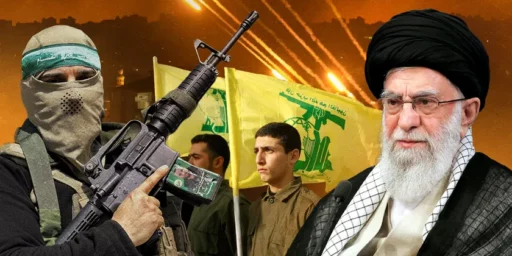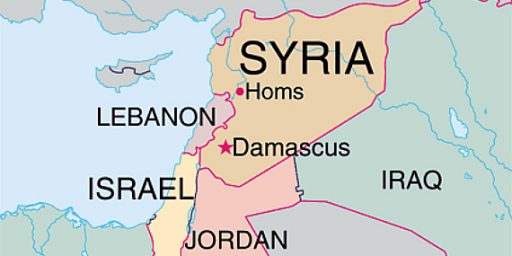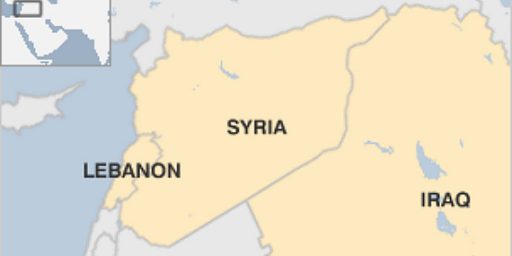Hezbollah Likely to Win Lebanon Elections
The short-term outcome of the revolution which brought political independence and democracy to Lebanon appears to be a government dominated by one of the world’s most dangerous Islamist terrorist groups.
Hezbollah Likely to Win Lebanon Elections (AP)
Hezbollah and its Shiite allies looked certain to capture all of southern Lebanon’s 23 parliamentary seats Sunday in the second stage of national elections, a vote the militant group hopes will send a message of defiance to the United States which brands it a terrorist organization. The elections, divided by region and spread over four consecutive Sundays, began last week in the capital Beirut where the dominant issue was the February assassination of former premier Rafik Hariri. His killing triggered massive street protests at home and international outrage abroad that eventually forced Syria to pull its army out of Lebanon, ending three decades of military domination.
The anti-Syrian opposition, led by Hariri’s son Saad, won most of the 19 seats in Beirut and is expected to be the biggest bloc in the new 128-seat parliament when the vote is complete. But in predominantly Shiite south Lebanon, which borders Israel, the election was all about Hezbollah and its weapons.
The United States demands Hezbollah abandon its weapons in line with last year’s U.N. Security Council Resolution 1559. Hezbollah, which is backed by both Syria and Iran, has refused to disarm, a position supported by the Lebanese authorities currently in power. “All the south came out today to send a clear message to the Americans that they embrace the resistance weapons and that they are independent in their decision and they are not subservient to international resolutions,” Sheik Nabil Kaouk, Hezbollah’s commander in southern Lebanon, said shortly after voting began.
Hezbollah, which fought Israel during an 18-year occupation, formed an election alliance with the country’s other major Shiite party, the more secular Amal movement. Though the two groups fought each other for control of the 1.2 million-strong Shiite community during Lebanon’s 1975-90 civil war, they have always forged election alliances in the past.
Unfortunately, democracy often leads to outcomes other than those preferred by outsiders, even the World’s Sole Remaining Superpower. Still, this is preferable to having the Lebanese population dominated by the Syrian dictatorship. So long as they remain free to choose a different party in the next elections–and that those elections happen on schedule–then we have to recognize the legitimacy of the new government.





Instead of dealing with Syrian oppressors marketed as liberators, the Southern Lebanese now show that they’re still dealing with a PLO-UN alliance of occupiers marketed as liberators.
I saw that extraordinarily misleading headline earlier today which has now been followed by a more accurate headline (both by the AP) which states that Hebollah wins the Southern District (their center of power) which was generally expected.
Even in the badly titled article above, the author notes: “The anti-Syrian opposition, led by Hariri’s son Saad, won most of the 19 seats in Beirut and is expected to be the biggest bloc in the new 128-seat parliament when the vote is complete.”
There are two more districts still to vote and the expectation, at this point, is a divided parliament whos largest bloc is the anti-Syrian opposition.